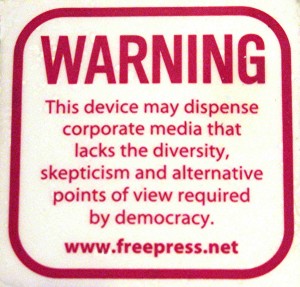Come to the United States for slow and expensive Internet
As reported by Common Dreams:
The New York Times reported on Wednesday that the U.S. has sunk to 25th in a global ranking of Internet speeds, just behind Romania. Why? Because our nation's regulators abandoned an earlier commitment to foster competition in the marketplace for Internet access providers.Here's the problem: Most households in the United States have little-to-no choice when it comes to land line broadband:
The lack of competition has turned America into a broadband backwater. In the aftermath of the FCC’s decisions, powerful phone and cable companies legislated and lobbied their way to controlling 97 percent of the fixed-line residential broadband market — leaving the vast majority of consumers with two or fewer choices of land-based providers in any given market.
This article links to a Free Press publication, "Dismantling Digital Deregulation: Toward a national Broadband Strategy," which tells us what deregulation has brought us:Almost right out of the gate, the Bush administration’s FCC declared war on competitive ISPs. It quickly decided that even though the cable platform had transformed into a two-way communications medium, cable companies didn’t need to abide by any of the pro-competitive requirements of the 1996 Act. The FCC also decided that incumbent monopoly phone companies would no longer be required to provide competitive broadband ISPs wholesale access at reasonable rates and conditions. This abandonment of “open access” policy flew in the face of congressional intent and doomed the competitive ISPs to irrelevancy and bankruptcy. Meanwhile, overseas, other countries maintained this commitment to competition and reaped the benefits. The OECD countries with open access policies have broadband penetration levels nearly twice that of countries without these policies. Citizens in the countries with open access policies also get more broadband bang for their buck. For example, consumers in countries with “line sharing” open access policies pay about $14 per Mbps; consumers in countries without these policies pay more than double this amount. The FCC, in its blind pursuit of deregulation, abandoned line sharing and other open access policies in the hopes that this “regulatory relief” would inspire incumbents to make massive investments in broadband infrastructure. But this hope, based in part on the promises made by the incumbents to get favorable FCC treatment, turned out to be completely false. An examination of the data reveals that the pace of broadband deployment was no different in the years before major FCC broadband deregulation than it was in the years after. States like Virginia and Maine saw no improvement in deployment, while in some states like Nebraska, things actually got worse. The FCC also justified its abandonment of competition policy by arguing that the incumbent phone and cable companies would offer third-party ISPs wholesale access on favorable terms, even though they weren't obligated to do so. In retrospect, letting the fox guard the henhouse was a colossal mistake. An examination of the offerings of the few remaining third-party broadband ISPs illustrates the obvious: that incumbents have absolutely no reason to offer their competitors favorable wholesale rates. For example, Earthlink still resells Time Warner Cable broadband service, but the monthly rate is so high that no consumer in his or her right mind would pay it. Earthlink’s 7 Mbps tier costs consumers nearly $30 more than if they bought it from Time Warner Cable directly, while the lowest-price tier is nearly 20 percent cheaper if purchased from Time Warner Cable. In many cases, once they were granted relief from providing reasonable wholesale access, incumbents refused to offer wholesale altogether or jacked up the rates so high that third-party ISPs would lose money.

